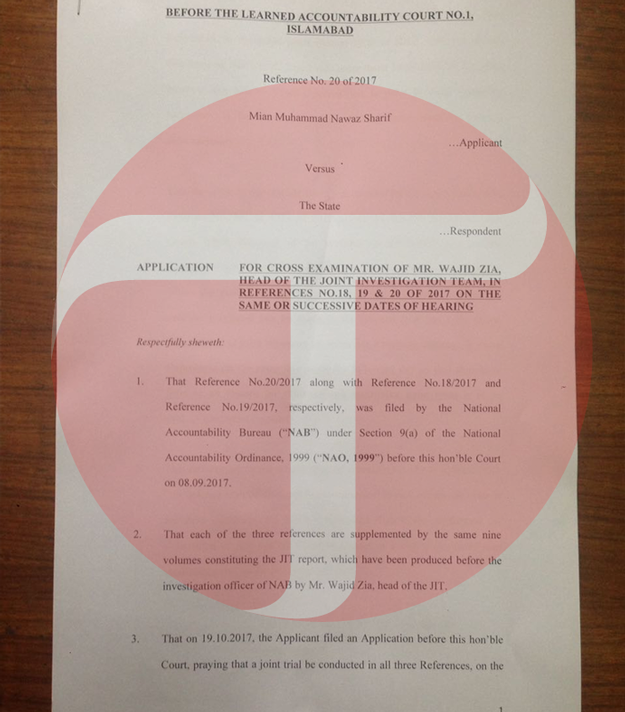Petition to record clubbed statement of JIT head Wajid Zia dismissed
The witnesses will be cross-examined by Defense Counsel Khawaja Haris

PHOTO: EXPRESS

Zia was summoned to record his statement in the Avenfield Apartments reference against Sharif, his two sons, daughter Maryam Nawaz, and son-in-law Captain (retd) Safdar, in line with the JIT report.
Judge hearing Sharif family cases may get extension
During the court proceedings on Friday, defense counsel Khawaja Haris submitted an application wherein it requested the court to conduct a joint trial in all three references on the basis of similar set of allegations against the applicants.
In the application, the Sharif family argued that giving more than one opportunity to Zia for recording testimony will give him a chance to improve his argument which may hamper the Sharif family’s defense.
Responding to the defense counsel’s arguments, NAB lawyer pointed out that if Zia changing his statement it will only benefit the Sharif family, allowing them to raise objections on his testimony.
Haris said that Zia should record his statement at once in the references and the defence team would then cross-examine the witness even if it takes days. The defense counsel cited a previous observation by the Islamabad High Court which allowed that a “request can be made to the learned trial court for cross-examination of joint witnesses which are common in three references on the same day or on the following day so that they have little or no chance for thinking and improving upon what is to be said,” to back its argument.
SC dismisses Sharif family's appeal seeking revaluation of wealth tax
Each of the three references are supplemented by the same nine volumes constituting the JIT report, six out of nine witnesses in one reference are the same, six out of 13 in another and two out of 10 in the third are common.
Earlier, different courts had turned down Sharifs’ request to combine the references and the trial court separately recorded testimonies of the witnesses.



















COMMENTS
Comments are moderated and generally will be posted if they are on-topic and not abusive.
For more information, please see our Comments FAQ